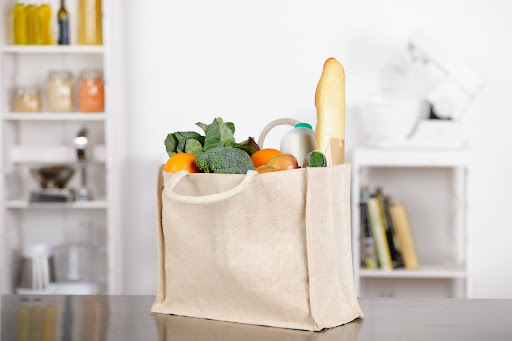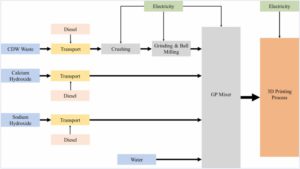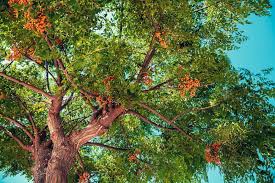Introduction
In an era where environmental sustainability is paramount, the shift towards eco-friendly shopping bags marks a significant stride in consumer habits and ecological responsibility. This comprehensive exploration delves into the evolution, benefits, and diverse types of eco-friendly bags, underscoring the global movement towards sustainable living.
The Environmental Crisis of Plastic Bags
Plastic bags, once a convenience, have burgeoned into a global environmental crisis. Their single-use nature and non-biodegradability contribute massively to landfill waste and marine pollution. The durability of plastics, ironically, poses a severe ecological threat, as they take centuries to decompose. The impact on marine life is particularly alarming, with numerous sea creatures mistaking plastic debris for food.
The Shift to Eco-Friendly Alternatives
In response to this crisis, a global shift towards eco-friendly shopping bags has emerged. This change is propelled by heightened consumer awareness, governmental policies, and innovative solutions from manufacturers. Consumers are increasingly seeking sustainable options, governments are implementing plastic bag bans and taxes, and manufacturers are exploring eco-friendly materials.
Types of Eco-Friendly Bags
The market for eco-friendly bags offers a variety of options, each with unique benefits:
- FSC Paper Bags: These bags, available at FSC Paper Bags, are made from paper sourced from sustainably managed forests. The Forest Stewardship Council (FSC) certification ensures that the production of these bags contributes to conservation, responsible management, and community-level benefits.
- RPET Bags: Made from recycled polyethylene terephthalate, RPET Bags are a testament to the innovative recycling of plastic waste. These bags are not only durable and reusable but also help in reducing the carbon footprint associated with new plastic production.
- Cotton and Canvas Bags: These natural fiber bags are both durable and biodegradable. They are often a preferred choice for their sturdiness and aesthetic appeal.
- Jute Bags: Known for their rustic look, jute bags are made from a natural fiber that is both biodegradable and strong. They are often used for heavy groceries due to their robust nature.
- PP Non Woven Bags: Bk-Bags offers customizable non-woven bags that are an eco-friendly alternative to traditional plastic bags. These bags are made from polypropylene, a durable and recyclable material, offering a lightweight and versatile option for various uses. The non-woven fabric is produced by spinning polypropylene into threads and then bonding them using heat, creating a fabric that is similar to canvas but more environmentally friendly. These bags are praised for their durability, reusability, and the ability to be customized in design, style, and size, making them a popular choice for businesses and consumers looking for sustainable packaging solutions.
- Non Woven Polypropylene Bags: These bags are made from a non-woven polypropylene textile, which is created by spinning polypropylene into threads that are then bonded together using heat. This process results in a durable textile similar to canvas, offering an inexpensive, lightweight, and eco-friendly alternative to single-use plastic bags. Many retailers provide these bags to customers at little or no cost. They are also available in laminated versions, which are water-resistant and slightly more durable. Despite being made from plastic, non-woven polypropylene bags are considered more environmentally friendly than single-use options, as long as they are reused multiple times.
- Woven Polypropylene Bags: Constructed from an interwoven polypropylene textile, these bags are known for their durability and strength. They can carry up to 40 pounds, making them ideal for grocery shopping and other heavy-duty tasks. Like their non-woven counterparts, woven polypropylene bags are an eco-friendly alternative to single-use plastic bags, offering benefits such as water resistance, recyclability, and a low environmental impact. They are more durable than non-woven polypropylene bags and can be used for a longer period.
Benefits of Eco-Friendly Bags
The benefits of using eco-friendly bags extend beyond just reducing plastic waste:
- Environmental Protection: By opting for bags made from sustainable materials, consumers contribute to reducing the pollution and energy consumption associated with plastic bags.
- Durability and Reusability: Unlike single-use plastic bags, eco-friendly alternatives are designed for long-term use, offering better durability and strength.
- Cost-Effective in the Long Run: Many retailers offer discounts for customers who bring their own bags, and the durability of eco-friendly bags means fewer replacements are needed.
- Versatility and Style: Eco-friendly bags come in various designs, colors, and sizes, making them a fashionable accessory for shoppers.
The Role of Government Policies
Governmental policies play a pivotal role in encouraging the use of eco-friendly bags. Bans, taxes, and regulations on single-use plastic bags have been effective in many regions, leading to a significant reduction in plastic waste. These policies not only encourage consumers to switch to sustainable alternatives but also motivate manufacturers to innovate in eco-friendly materials and designs.
Consumer Awareness and Responsibility
The shift towards eco-friendly bags is also a result of increased consumer awareness. People are more informed about the environmental impacts of their choices and are actively seeking sustainable alternatives. This awareness is often fueled by educational campaigns, media coverage of environmental issues, and the growing trend of eco-conscious consumerism.
Challenges in the Transition
Despite the benefits, the transition to eco-friendly bags faces several challenges. The higher production cost of sustainable materials can lead to more expensive products, potentially limiting their accessibility. Additionally, there is a need for widespread consumer education to ensure proper use and disposal of eco-friendly bags, as even biodegradable materials require specific conditions to decompose effectively.
Innovations in Eco-Friendly Bag Manufacturing
Manufacturers are continually innovating to create more sustainable and efficient bags. This includes exploring new materials, improving recycling processes, and designing bags that cater to various consumer needs. Innovations like biodegradable plastics, upcycled materials, and energy-efficient production methods are paving the way for a more sustainable future in the industry.
The Future of Shopping Bags
Looking ahead, the future of shopping bags is poised to be more sustainable and environmentally friendly. As technology advances and consumer demand for sustainable products grows, we can expect to see more innovative solutions in this space. The goal is to create a circular economy where shopping bags are not just used and discarded, but are part of a larger system of reuse and recycling.
The Impact on Retailers and Businesses
Retailers and businesses play a crucial role in promoting eco-friendly bags. By offering sustainable bag options, like FSC Paper Bags and RPET Bags, and incentivizing their use, businesses can significantly influence consumer habits. Retailers and brands are also using these bags as a means of branding, turning them into a statement of their commitment to sustainability.
The Global Perspective
The movement towards eco-friendly bags is not confined to any single region; it’s a global phenomenon. Countries around the world are recognizing the importance of reducing plastic waste and are adopting measures to promote eco-friendly alternatives. This global perspective is crucial in addressing a problem that knows no borders.
Consumer Choices and the Environment
Every consumer choice has an environmental impact. By choosing eco-friendly bags, individuals can make a small but significant contribution to a larger environmental cause. It’s about making conscious choices that align with a sustainable lifestyle.
The Role of Education and Awareness
Education and awareness are key to the widespread adoption of eco-friendly bags. Through educational programs, public campaigns, and social media, the message of sustainability can reach a broader audience. Educating consumers about the benefits of eco-friendly bags and how to use and dispose of them properly is essential for making a lasting impact.
The Importance of Quality and Design
Quality and design play a significant role in the popularity of eco-friendly bags. Consumers are more likely to reuse a bag that is not only environmentally friendly but also aesthetically pleasing and functional. Manufacturers are focusing on creating bags that meet these criteria, offering a range of styles to appeal to different tastes and needs.
The Role of Innovation and Technology
Innovation and technology are driving forces behind the development of more sustainable shopping bags. From biodegradable materials to smart designs that reduce material use, technological advancements are enabling the creation of bags that are both eco-friendly and practical for everyday use.
The Impact on Consumer Behavior
The availability of eco-friendly bags is influencing consumer behavior. As more people become aware of the environmental impact of their choices, they are increasingly opting for sustainable alternatives. This shift is not only beneficial for the environment but also for the consumers, as they become part of a larger movement towards a greener future.
Conclusion
The trend towards eco-friendly shopping bags is a vital component of the global movement towards sustainability. With options like FSC Paper Bags, RPET Bags, and other sustainable alternatives, consumers have the power to make a significant positive impact on the environment. As this trend continues to grow, it paves the way for a more sustainable future, where responsible consumption and environmental stewardship are integral to everyday life.





Be First to Comment